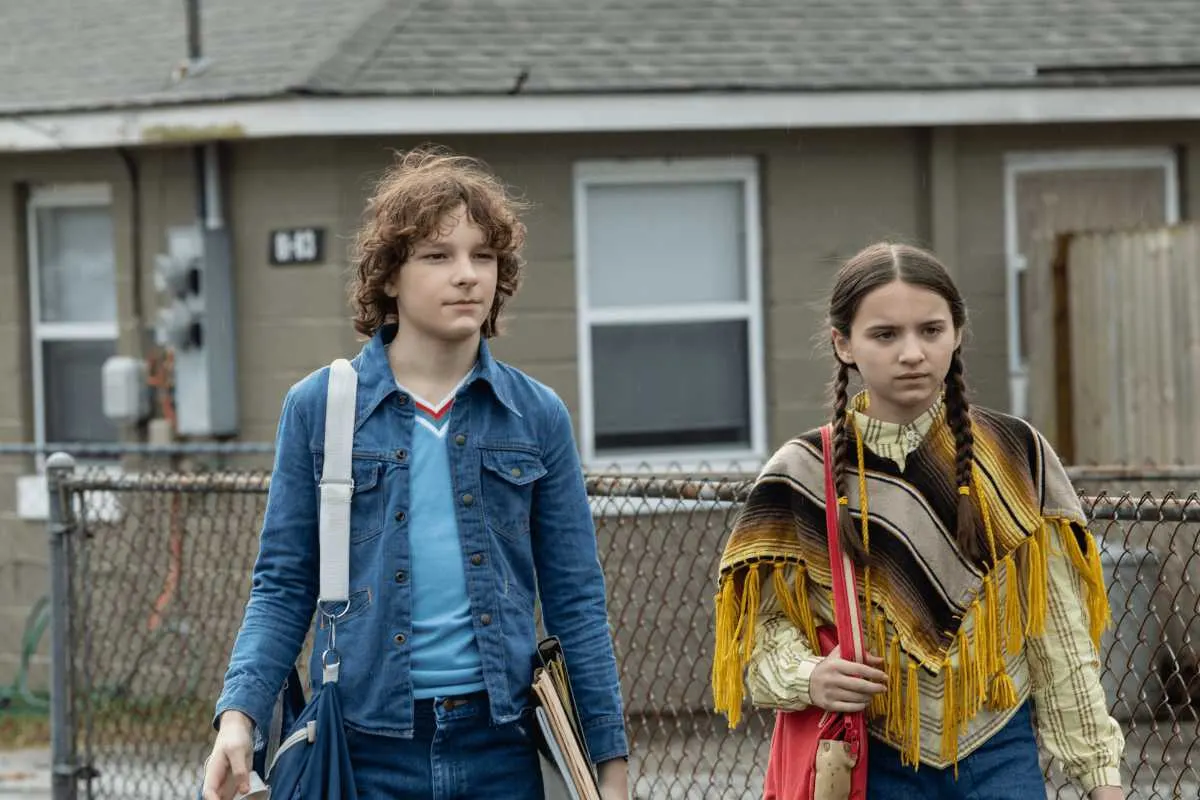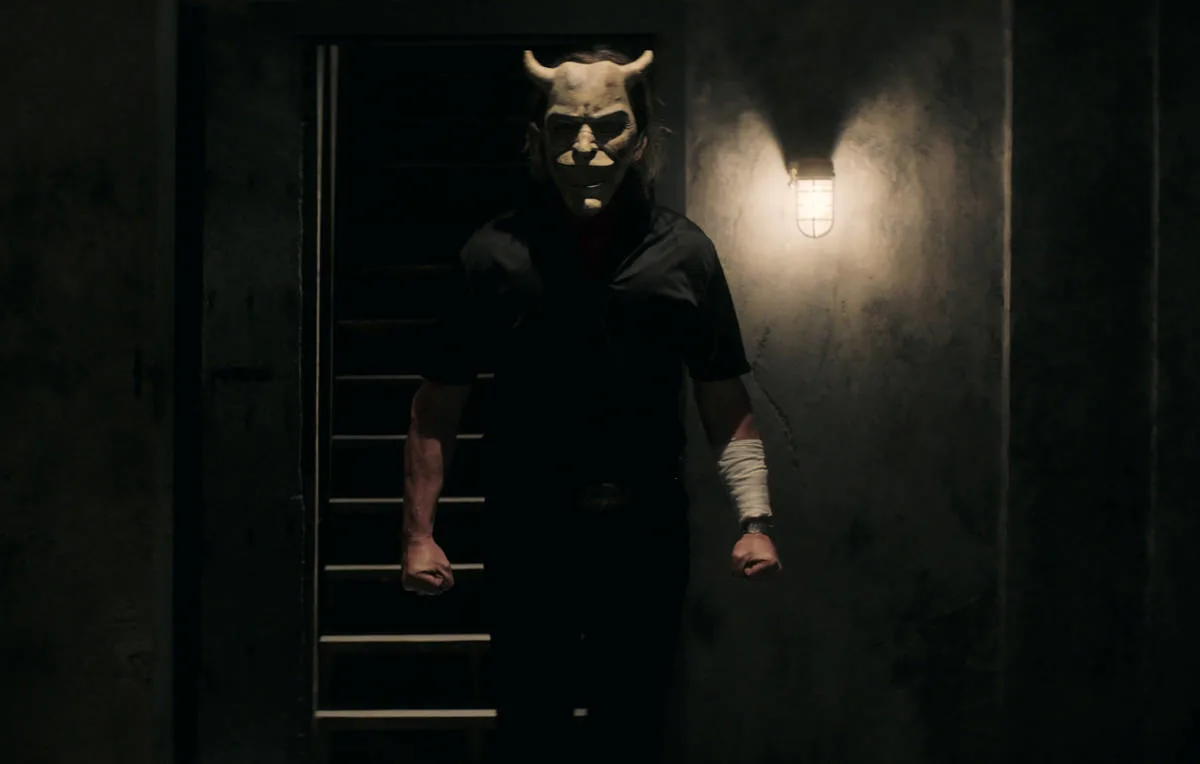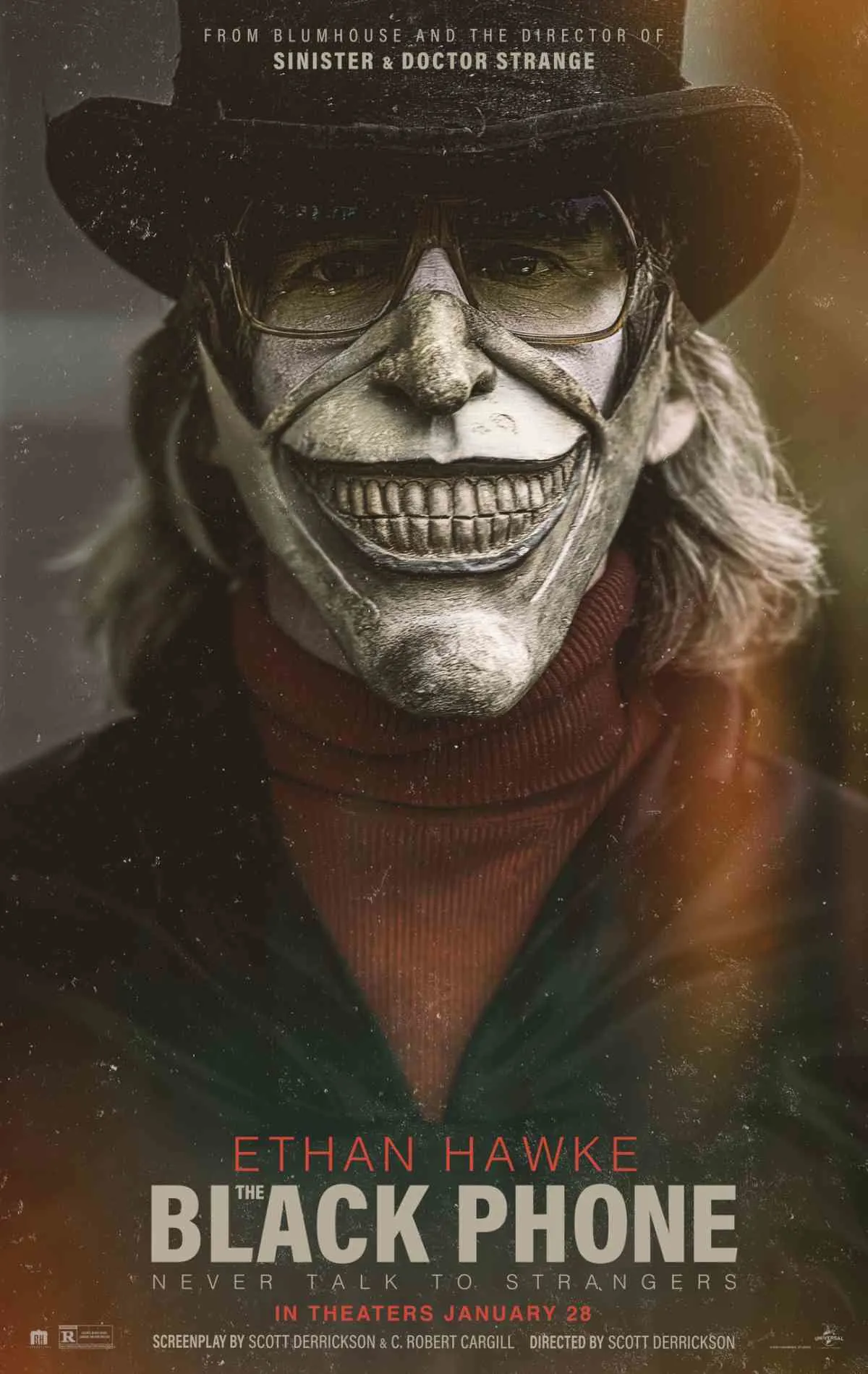(Disclosure: The author of this review has been friends with C. Robert Cargill, the co-writer of The Black Phone, for many years, going back to the days when they wrote together for a film review website. The author has also been on friendly terms with the film’s director, Scott Derrickson.
While the author’s opinions of The Black Phone are genuine, the author also felt strongly that the nature of his relationship with the filmmakers was transparent, accurate, and documented in the review.)
The tool that is probably used the most in the horror film genre’s toolbox is the jump scare. If used correctly, the jump scare can be quite effective. There’s always the initial shock, the jolt, and then, most of the time, the laughter. It’s part of the fun of watching a scary movie, and there’s nothing wrong with a fun poke in the side, but if you use it too much, it weakens the effect of the overall film.

If it’s a particularly well-done jump scare, the laughter is nervous laughter. If it’s a perfectly-orchestrated jump scare, the laughter is muted or even non-existent. You have placed genuine fear into the audience’s collective heart. That is difficult to pull off; the filmmakers must also establish a sense of atmosphere and dread and facilitate the complete investment of the audience in the story and the characters. When you have all that, you’ve created something special.
Scott Derrickson is a master of the jump scare. He’s not pushing cats on beds with the shrill violins of the orchestra reminding the audience that they should jump out of their seats now. His scares matter and stick to the soul. The Black Phone never overdoes it with those jolts, and when they do come, they count.
They build on the audience’s imagination and leave room for the audience to think and appreciate what they are seeing. There are great jump scares in Sinister (the lawnmower sequence in that film is an all-timer), but these scares raise the stakes for our hero, Finney (Mason Thames). Finney is in real trouble, and we can’t be certain he’s going to get out of it.

The year is 1978, and it’s not a particularly great time to be a kid. People tend to remember their childhood with nostalgia and grace, but The Black Phone reminds us that childhood can also be cruel and indifferent, and kindness is far too often mistaken as weakness. Finney is kind and has friends, but they can’t always be around, and if not for his sister Gwen (Madeleine McGraw) sticking up for him, Finney would be prey to all the bullies in town.
Home isn’t much better; his father (Jeremy Davies) is a drunken wreck after the passing of Finney and Gwen’s mother and often takes out his frustrations on the children. (Kids, the 1970s were a thing. Parents sometimes hit kids. So much mental and physical abuse went unreported because that’s just how things were. The Black Phone feels very true to its era; indeed, it feels like, at times, it could have fallen straight out of 1978.)
It’s a dangerous world for children in general. Someone called “The Grabber” has kidnapped five children so far, and the police are stumped, even going so far as to pay a visit to Gwen when she claims that she’s been having dreams about the missing. Eventually, “The Grabber” (Ethan Hawke) makes his way to Finney. Finney, stuck in the Grabber’s basement, is terrified, without agency, and alone.

Or is he? Because the disconnected black phone on the wall keeps ringing. And when Finney answers it, he hears voices. Those voices want to help Finney, but if Finney doesn’t listen, he may suffer the same fate.
The performances of The Black Phone are so very strong. Mason Thames as Finney is terrific. Finney’s a good kid in a bad spot, and we see the wheels spinning in his mind as he tries to navigate himself out of a very bad situation. Thames shows Finney’s intelligence and fear intertwined, as hope gives way to despair and back to hope again. It’s a complicated, nuanced child performance that we don’t often see in horror films, and Thames makes a meal out of it.
So does Madeleine McGraw. Gwen is braver than her brother in a lot of ways and knows when to stand up for herself, even when no one else will. She also loves her brother deeply, and she will fight to save him any way she can. McGraw also gets some of the film’s best and funniest lines – as someone who lived through the 1970s as a kid, we cussed. We cussed a lot. We’d pat ourselves on the back for any particularly innovative turns of phrase. And let me tell you, McGraw’s Gwen throws out some fierce stompers. You can hear Derrickson and co-writer C. Robert Cargill having a lot of fun with that character.
Ethan Hawke’s Grabber is a terrifying creation, and not just for the Tom Savini-designed mask that he constantly wears through The Black Phone. The film doesn’t give the Grabber much backstory, but Hawke fills his character with life. He’s scarier in his quiet moments, but Hawke also gives us a look at the banality of his evil, which I feel is what attracted him to the part in the first place.
The Grabber isn’t a boogeyman – he’s a cruel human being, and Finney recognizes that cruelty immediately as he’s experienced it so much already. And, though Finney doesn’t realize it at first, he can use that experience against his captor. The Grabber is a formidable villain because Hawke isn’t interested in giving him any sympathetic moments. We don’t need to understand the reason for his malice; we need only to understand that he’s just another bully, and Hawke keeps him dangerous, like a shark in shallow waters.
Derrickson and Cargill’s script bounces off Joe Hill’s story in ways that still feel very much in the spirit of the story but allow Derrickson and Cargill to bend and twist the narrative in unexpected ways. They are building a fragile house of cards, but when all is revealed, you can see the delicacy in how they laid each card on the table. Each action has weight and meaning, and The Black Phone is lean but without any wasted moments. There are moments of well-placed humor, but they never overpower the tension.
This is an incredibly well-crafted film, from the score, cinematography, and three remarkable performances. Jeremy Davies could have pulled back somewhat, but it’s a minor discordant note in a beautiful, nuanced symphony.
The Black Phone is meaningful, scary, thrilling, full of powerful performances, and when you jump — and you will — it will be because you are in the hands of a confident guide, willing to take you through dark places and bring you through them into the light outside the theater, which is where you should see this. This was a blast to share with an audience receptive to its power, and you will be able to experience it for yourself in January 2022.
THE BLACK PHONE REVIEW SCORE: 8.5/10
Universal Pictures and Blumhouse‘s The Black Phone is scheduled to open in theaters on Friday, January 28, 2022.


Alan Cerny has been writing about film for more than 20 years for such sites as Ain’t It Cool News, CHUD, Birth Movies Death, and ComingSoon. He has been a member of the Houston Film Critics Society since 2011. STAR WARS biased. Steven Spielberg once called Alan a “very good writer,” and Alan has the signed letter to prove it, so it must be true.